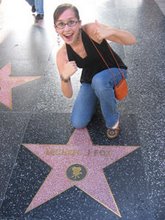While the quality of the acting is unimpressive, and the musical performances do not live up to the songs themselves, my biggest complaint with the movie is that not enough was done in the adaptation process to make the story stand on its own as a film. Sometimes it felt like watching a staged reading. Lead actor Rocky McKenzie has about a thimble-full of charisma, but he leaves room for more interesting supporting performances by Geoffrey Rush, Ernie Dingo, and Tom Budge (and impressive singing by Missy Higgins and Jessica Mauboy, unsurprisingly). It would have been great to see more time and planning devoted to the musical numbers, but I wondered if efforts to keep the story true to its origins got in the way of what could have taken on new life as a great quirky musical film. And for the record, looping the audio of tap dancing into scenes where actors' feet are out of frame is against the rules.
Major themes in the film are about how to properly express identification with the Aboriginal culture, and what it means to be an Aborigine. I wondered why, then, the story was set in 1969, two years after Aboriginal people legally became considered people in Australia (previously, they were listed as native fauna). There are a number of characters or lines in the movie which hint at the systematic usage of Aboriginal women for sex that had been ongoing for decades, but it all fades into a lighthearted wink at the camera and there are no real lessons to be learned. In the end, all the characters, regardless of origin, gather around a table and sing the main chorus:
There's nothing I would rather beI wondered exactly how seriously we were supposed to take the movie, and landed on regarding it as a very sweet and simple musical comedy of errors, with a lot of unfulfilled potential. I wonder how it was received by viewers with no exposure to Australian history or culture, or to Australians. Thoughts?
Than to be an Aborigine,
And watch you take my precious land away.
For nothing gives me greater joy
Than to watch you fill each girl and boy
With superficial existential shit.





No comments:
Post a Comment